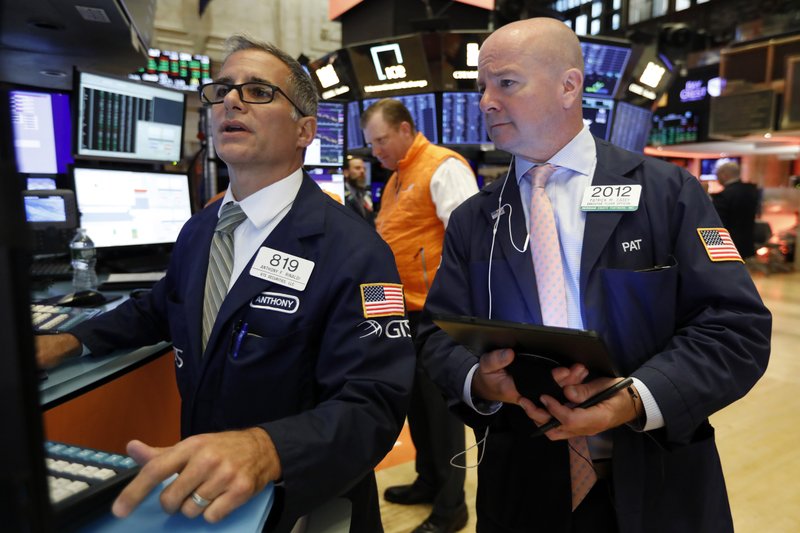Wall Street ended a choppy week of trading with a broad rally that drove the Dow Jones industrial average more than 370 points higher.
The gains Friday also gave the S&P 500 index its best day in seven weeks, though the benchmark index still finished with its third-straight weekly loss.
Technology, health care and financial stocks powered much of the rally, which was spurred by mixed job market data for September. The report showed that employers are still adding jobs at a healthy clip, albeit more slowly, and that the national unemployment rate dropped to a five-decade low.
The jobs report punctuated a rough week dominated by surprisingly weak numbers in surveys of manufacturing and service industries, which raised recession worries and sent the S&P 500 to its first back-to-back losses of 1% this year.
"There's probably some relief this morning that the labor report didn't confirm or enhance the weakness that we saw out of the two [economic] surveys," said Bill Northey, senior investment director at U.S. Bank Wealth Management.
The S&P 500 rose 41.38 points, or 1.4%, to 2,952.01. The index finished the week with a 0.3% loss.
The Dow index climbed 372.68 points, or 1.4%, to 26,573.72. The Nasdaq composite gained 110.21 points, also 1.4%, to 7,982.47. The Russell 2000 index of small-company stocks rose 14.36 points, or 1%, to 1,500.70.
Stock markets around the world rose and gold dipped after the release of the U.S. jobs data as investors felt less need for safety.
The Labor Department said employers added 136,000 jobs last month, slightly less than the 145,000 that economists were expecting and below the 168,000 pace from August. Workers' wages were also weaker than expected, with zero growth from a month before.
On the encouraging side, the government said hiring in previous months was stronger than earlier estimated, and the unemployment rate dropped to 3.5% from 3.7%.
If the job market can remain strong, it would allow U.S. households to keep spending. And that spending strength has been the hero for the economy recently, propping it up when slowing growth abroad poses a threat and the trade war with China saps exports and manufacturing.
The yield on the 10-year Treasury note held steady at 1.53%. The two-year yield, which moves more on expectations about what the Federal Reserve will do, rose to 1.40% from 1.37%.
Technology, health care, financial and communication services stocks accounted for much of the market's gains Friday. Visa rose 1.8%, UnitedHealth Group gained 2.1%, Citigroup rose 2.2% and Google parent Alphabet picked up 1.8%.
Apple helped drive the market higher, rising 2.8%. A Japanese newspaper, Nikkei, said that the company asked suppliers to ramp up production of its iPhone 11. Moves in Apple's stock have an outsized effect on the S&P 500 because it's the second-largest constituent in the index by market size.
Crude oil recovered from an early slide to close with a modest gain. Still, it ended the week with a loss of 5.3%, reflecting worries about weakening demand and growing supplies.
Benchmark U.S. crude rose 36 cents to settle at $52.81 per barrel. It started the week at $55.91. Brent crude, the international standard, gained 66 cents to close at $58.37 per barrel.
Business on 10/05/2019
